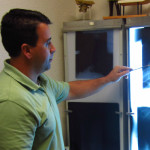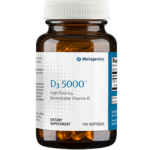What is Acupuncture?
Acupuncture is a time tested, safe, effective and natural way to eliminate pain. Acupuncture is the practice of puncturing of the skin at certain points on the body to relieve symptoms associated to many disorders. Acupuncture is thousands of years old and has been used by more than 3.2 million Americans. At it’s core, is the body’s “life force” called Qi (pronounced chee). It flows along pathways called Meridians around the body. Imbalances in the flow of qi can cause disease; correction of this flow restores the body to balance. Removing this root cause of imbalance gives tremendous results.
Is is Painful?
The needles used are hair thin and virtually painless, or less painful than plucking a hair out. They are not designed to cut the skin like a hypodermic needle and are inserted at a more shallow level. Some people report feeling energized while others say they feel relaxed. Once the needles are in, you will need to rest for 15-45 minutes. Most people often feel very relaxed and often doze off. During your acupuncture session, you are able to bring your IPod, mp3 player, or any music player to listen to for your own relaxation. We also have Wi-Fi if you want to connect to any streaming music source that needs an Internet connection.
Is it Safe?
Absolutely. The needles used are sterile and single use. Rarely some mild bruising may occur at the insertion site. Bleeding rarely occurs unless in specific conditions where it is desired. The amount of bleeding is always small, rarely more than a drop and far from dangerous.
What should I expect on my First Visit?
The first visit usually lasts about an hour. A detailed history consultation with Dr. Falconer will be followed by a physical exam. A computerized test to measure electrical activity at certain points on the hands and feet is often used. Your pulse will be felt and your tongue will be checked. Any problem areas will be analyzed. Wear loose and comfortable clothing.
How many Treatments will I need?
The number of treatments depends on the goals of the treatments and the complexity of your condition. A typical course of care averages 10 sessions, although significant benefits are often seen after just one or two sessions. You may only need one or two treatments for a recent back strain, while a long standing condition may require several months to generate optimal results.
What does is treat?
According to the World Health Organization, the National Institutes for Health, and clinical experience, Acupuncture is useful in the treatment of: Chronic and Acute Pain- Injuries, headaches, neck and back pain, tendinitis, sciatica, carpal tunnel syndrome, fibromyalgia Neurological Disorders- Post-stroke recover, Bell’s Palsy & Trigeminal Neuralgia, movement disorders Upper Respiratory Disorders- Asthma, allergies, bronchitis, sinusitis, sore throat, laryngitis, colds and flu Digestive Disorders- Irritable bowel, colitis, constipation, diarrhea, gastritis, heartburn, food allergies, ulcers Urinary and Reproductive Disorders- Cystitis, menstrual cramps, irregular or heavy periods, infertility, menopausal symptoms Immune Function- Recurrent infections, supportive treatment for cancer and AIDS patients Additions- Addictions to nicotine, alcohol and drugs Eye and Ear Disorders- Tinnitus, Meniere’s disease Depression, Anxiety and Insomnia.
How does Acupuncture Work?
There are many theories as to how acupuncture works. When acupuncture points are stimulated, it often causes a dull ache or other sensations in the muscle. One theory holds that the stimulated muscle and sensory neurons send a message to the brain causing the release of endorphins (naturally produced pain killers) and other neurotransmitters (body chemicals that modify nerve impulses), which help block the message of pain from being delivered to the brain and have other regulatory effects as well. Other experts believe that acupuncture works by transmitting signals via the fascia. Fascia is like a thin sheath that surrounds all of the body’s muscles. Some acupuncturists consider the meridians to represent myofascial chains- which helps explain why stimulating an acupuncture point in the lower leg can affect the back or other areas. Interestingly, research shows that acupuncture points have a lower electrical resistivity than surrounding areas. In a practical sense, the meridian system provides a navigable energetic map of the body for acupuncturists to locate and treat many conditions.
Does Insurance cover Acupuncture?
The number of insurance companies to recognize the benefits of acupuncture are rapidly expanding. Certain restrictions often apply to the type of illness covered. Call our office and we will gladly check if your insurance company will help cover the cost.
I’m ready to make an appointment – What’s next?
Give our office a call at 812-477-6200 OR fill out this contact form and we will get back to you shortly. Our front office team will be happy to answer any further questions you may have as well as pick an appointment time to best suite your needs and schedule. We look forward to meeting you soon!




